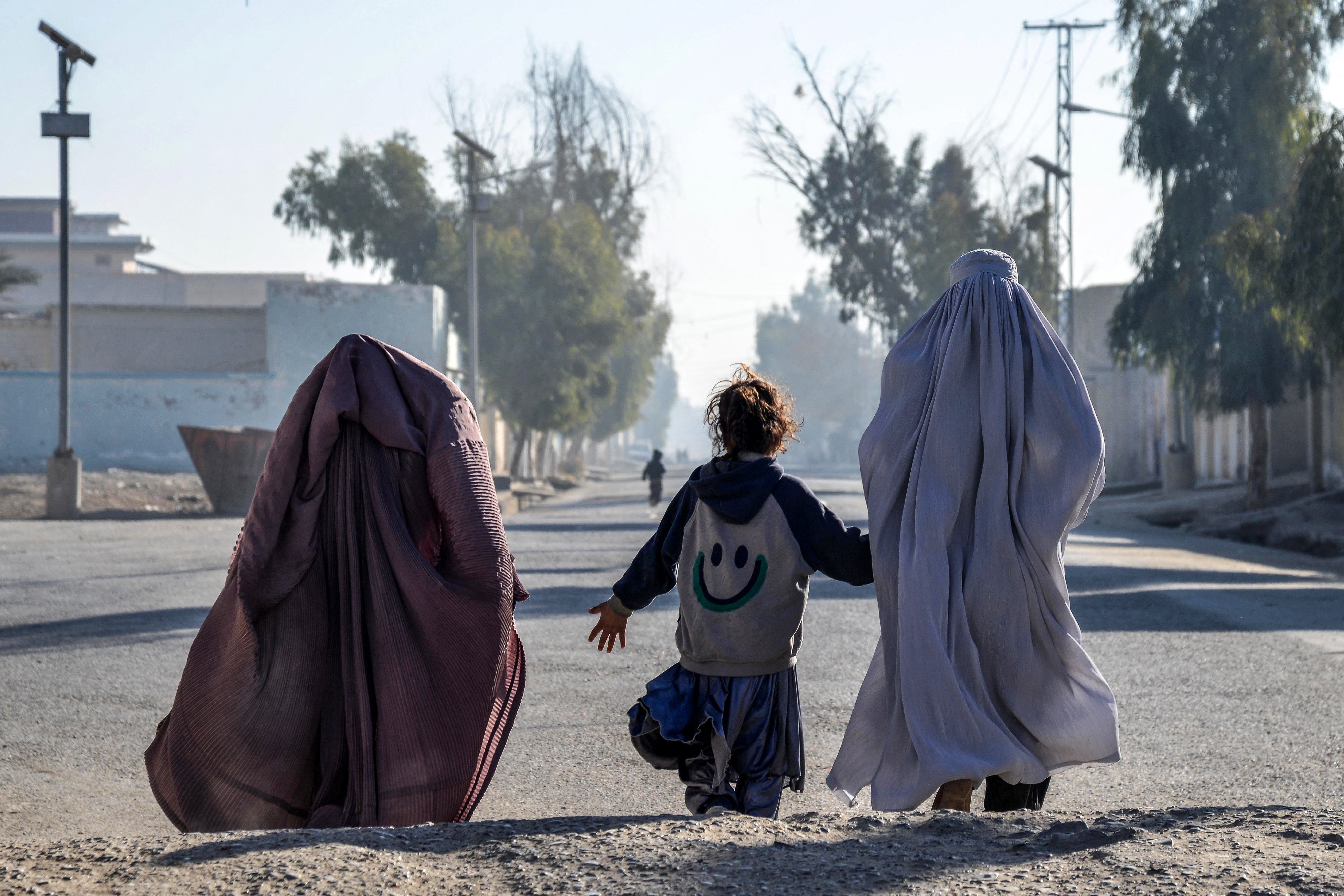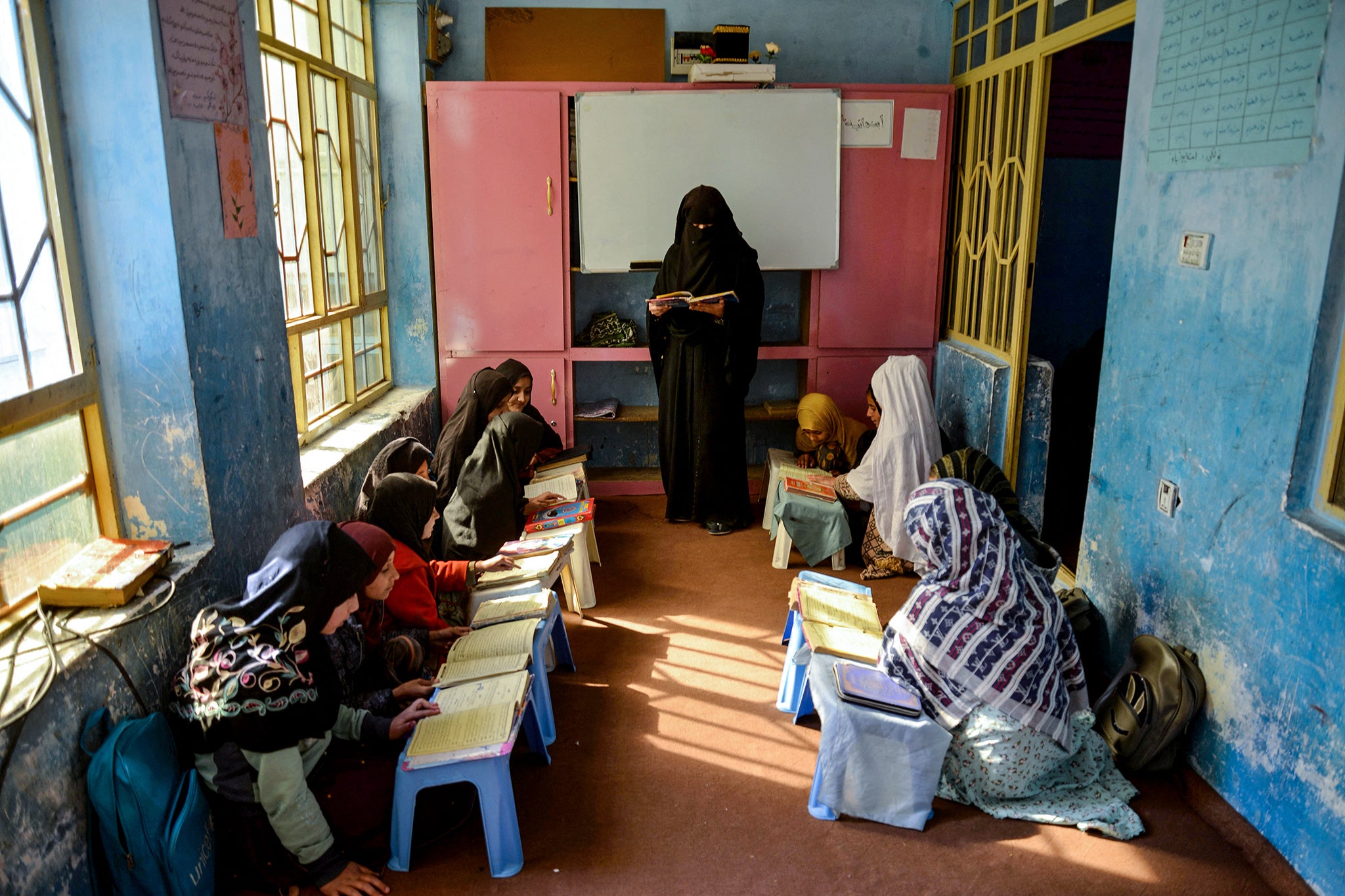
Women in Afghanistan have been forced to turn to artificial intelligence for friendship after the Taliban government restricted their rights across the country.
Lima, an 18-year-old from rural Afghanistan, said she treats AI as a friend to help her get through the days. Asked by the BBC how she spends her mornings, she said: “Reading novel, or chatting with AI, usually, to empty every single word of me - to talk, ask questions, or simply treat as a friend.
“The AI app makes a character of your favourite idol. All the famous people you know you can talk with them or say anything you want. You can ask them questions. You can give yourself a fake hope and make them your friend or family.”
The Taliban swiftly regained control of Afghanistan in 2021 after the US withdrew its last troops from the country. Despite initially declaring that women would be allowed to work and study, the Taliban government brought in restrictions that have affected nearly all aspects of daily life for women.

Girls cannot study beyond grade 6. Women have been barred from studying, including training to be a midwife, and banned from working.
They cannot go to salons or the gym, and must be covered head to toe and be chaperoned by a male guardian when leaving the house. They aren’t even allowed to sing, speak or pray in public.
In January, the Taliban introduced a new rule banning windows in residential buildings to prevent women from being seen while they are home.
“Seeing women working in kitchens, in courtyards or collecting water from wells can lead to obscene acts,” government spokesperson Zabihullah Mujahid said on X.
The BBC has been interviewing a dozen women about their lives after three-and-a-half years of Tailban rule, and ahead of International Women’s Day on Saturday.

Zarina, a psychologist, said Afghanistan “changed suddenly and unexpectedly” in 2021 which had been difficult for many people.
“The situation of each woman varies depending on her understanding of her surroundings and the damage she has suffered - it is not the same for everyone,” she said.
“Some were separated from their loved ones, some faced economic hardship, some lost their jobs, schoolgirls were deprived of education, and university students were distanced from their goals and left with unfulfilled dreams.”
Another woman, Freshta, told the BBC she had not been on a proper outing since the Taliban took over.
“Our activities are very limited. We mostly stay on our phones, reading books or browsing information online,” she said.
“We also don’t have family gatherings. I wish someone would invite us over so we could have a change of scenery and refresh our minds.”
She added: “I remember the last time we had a proper outing—just a week before the Taliban government took over. We went to Paghman, Bamiyan, and Band-e-Amir. Now, those days feel like a distant memory, and it makes me incredibly sad. Seeing pictures and memories from that time is very hard for me.”
The Independent has marked International Women’s Day by compiling a list of the 50 most influential women across the worlds of politics, sports, the arts, media, business, fashion and activism. Click here to see the full list.







